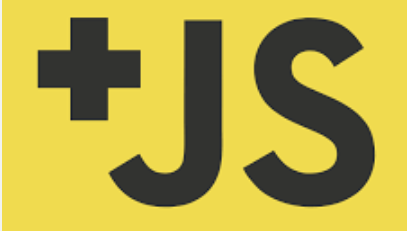
Welcome to our comprehensive guide to JavaScript programming! In this article, we will delve into the intricacies of JavaScript, covering its various concepts, syntax, and practical applications. Whether you're a beginner looking to get started with JavaScript or an experienced developer seeking to enhance your skills, this guide is designed to cater to your needs. By the end of this article, you'll have a solid understanding of JavaScript and be well-equipped to tackle programming challenges. Let's dive in!
Table of Contents
- What is JavaScript?
- JavaScript Syllabus Overview
- Core JavaScript Concepts
- Variables and Data Types
- Operators
- Control Flow
- Functions
- Arrays
- Objects
- Loops
- DOM Manipulation
- Events
- Advanced JavaScript Topics
- Closures
- Prototypes and Inheritance
- Asynchronous JavaScript (Promises, Async/Await)
- Error Handling
- Modules
- Regular Expressions
- ES6+ Features
- JavaScript Frameworks and Libraries
- React.js
- Angular
- Vue.js
- Tools and Resources for JavaScript Development
- Conclusion
1. What is JavaScript?
JavaScript is a popular high-level programming language primarily used for developing interactive web applications. It is supported by all modern web browsers and enables dynamic and responsive behavior on web pages. JavaScript can be used for a wide range of purposes, including form validation, interactivity, animations, and data manipulation.
2. JavaScript Syllabus Overview
To master JavaScript programming, it is essential to cover a comprehensive syllabus that encompasses both fundamental and advanced topics. The following syllabus is designed to provide a structured learning path:
Core JavaScript Concepts
Variables and Data Types
- Declaring and assigning variables.
- Primitive data types (string, number, boolean, null, undefined).
- Complex data types (object, array).
- Type coercion and conversion.
Operators
- Arithmetic, assignment, comparison, and logical operators.
- Bitwise operators.
- Ternary operator.
Operators
- Conditional statements (if-else, switch).
- Looping constructs (for, while, do-while).
- Break and continue statements.
Functions
- Function declaration and expression.
- Function parameters and arguments.
- Return statements.
- Scope and hoisting
Arrays
- Creating and manipulating arrays.
- Array methods (push, pop, shift, unshift, slice, splice).
- Iteration methods (forEach, map, filter, reduce).
Objects
- Object literals.
- Object properties and methods.
- Object constructors and prototypes.
- Object destructuring
DOM Manipulation
- Accessing and modifying HTML elements using JavaScript.
- Traversing the DOM.
- Manipulating CSS classes.
- Creating and appending elements dynamically.
Events
- Event handling and event listeners.
- Commonly used events (click, submit, keyup).
- Event propagation and delegation.
Advanced JavaScript Topics
Closures
- Understanding closures.
- Lexical scope.
- Practical uses of closures.
Prototypes and Inheritance
- Prototypal inheritance.
- Creating and extending prototypes.
- Object-oriented programming in JavaScript.
Asynchronous JavaScript (Promises, Async/Await)
- Introduction to asynchronous programming.
- Working with promises.
- Async/await syntax.
Error Handling
- Handling and throwing errors.
- Try-catch blocks.
- Error objects.
Modules
- Modular JavaScript development.
- ES6 modules.
- CommonJS and AMD modules.
Regular Expressions
- Regular expression syntax and patterns.
- String matching and manipulation .
ES6+ Features
- Arrow functions.
- Destructuring assignment.
- Template literals.
- Spread and rest operators
JavaScript Frameworks and Libraries
JavaScript frameworks and libraries provide powerful tools and abstractions to simplify web development. Here are some popular ones:
Angular
- Overview of Angular Framework.
- Components and directives.
- Angular template syntax.
- Services and dependency injection.
- Routing and navigation.
Vue.js
- Getting started with Vue.js
- Vue instance and lifecycle hooks.
- Vue components and props.
- Vue router and state management.
- Vue CLI and single-file components.
6. Tools and Resources for JavaScript Development
To enhance your JavaScript programming experience, here are some useful tools and resources:
- Integrated Development Environments (IDEs): Visual Studio Code, WebStorm, Atom.
- Package managers: npm, Yarn.
- Code editors and online sandboxes: CodePen, JSFiddle.
- JavaScript documentation: Mozilla Developer Network (MDN).
- Online learning platforms: Codecademy, Udemy, freeCodeCame.
- JavaScript libraries and frameworks: jQuery, lodash, moment.js.

Conclusion
In this comprehensive guide, we have covered the essential topics and concepts of JavaScript
programming. From core JavaScript fundamentals to advanced techniques, we have explored a
wide range of topics that will help you become proficient in JavaScript development.
If you enjoyed this piece, we've crafted a related article delving into A Comprehensive Guide to React Native Modal Datetime Picker. Explore it here.
final thought


by Harsh Verma
final thought
